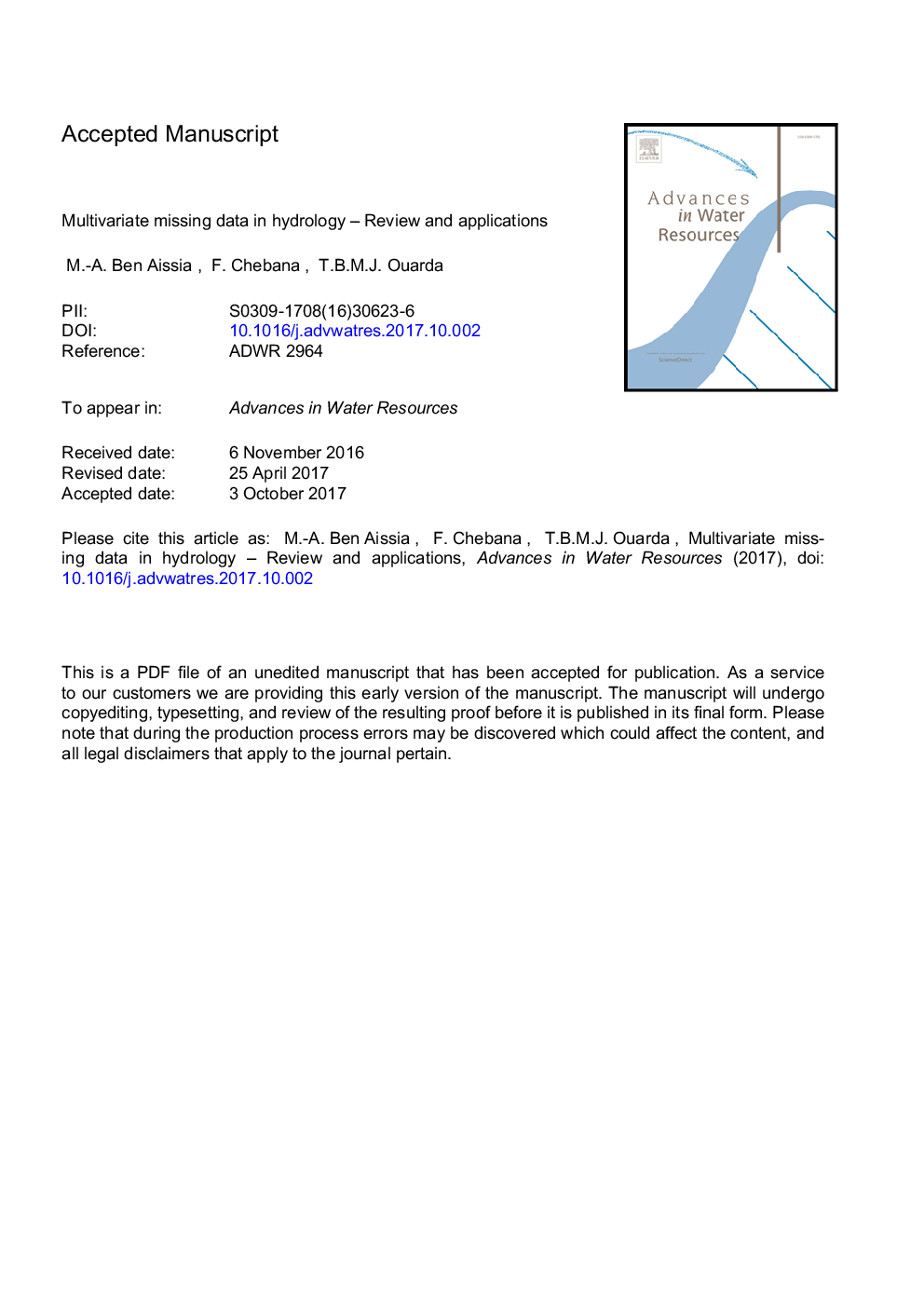| Article ID | Journal | Published Year | Pages | File Type |
|---|---|---|---|---|
| 8883453 | Advances in Water Resources | 2017 | 41 Pages |
Abstract
Water resources planning and management require complete data sets of a number of hydrological variables, such as flood peaks and volumes. However, hydrologists are often faced with the problem of missing data (MD) in hydrological databases. Several methods are used to deal with the imputation of MD. During the last decade, multivariate approaches have gained popularity in the field of hydrology, especially in hydrological frequency analysis (HFA). However, treating the MD remains neglected in the multivariate HFA literature whereas the focus has been mainly on the modeling component. For a complete analysis and in order to optimize the use of data, MD should also be treated in the multivariate setting prior to modeling and inference. Imputation of MD in the multivariate hydrological framework can have direct implications on the quality of the estimation. Indeed, the dependence between the series represents important additional information that can be included in the imputation process. The objective of the present paper is to highlight the importance of treating MD in multivariate hydrological frequency analysis by reviewing and applying multivariate imputation methods and by comparing univariate and multivariate imputation methods. An application is carried out for multiple flood attributes on three sites in order to evaluate the performance of the different methods based on the leave-one-out procedure. The results indicate that, the performance of imputation methods can be improved by adopting the multivariate setting, compared to mean substitution and interpolation methods, especially when using the copula-based approach.
Related Topics
Physical Sciences and Engineering
Earth and Planetary Sciences
Earth-Surface Processes
Authors
Mohamed-Aymen Ben Aissia, Fateh Chebana, Taha B.M.J. Ouarda,
